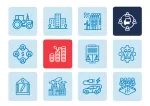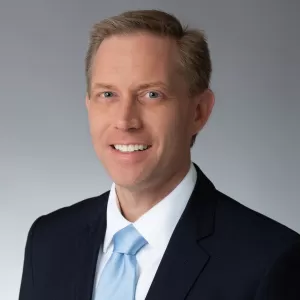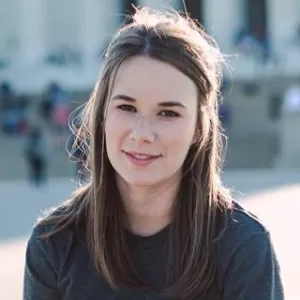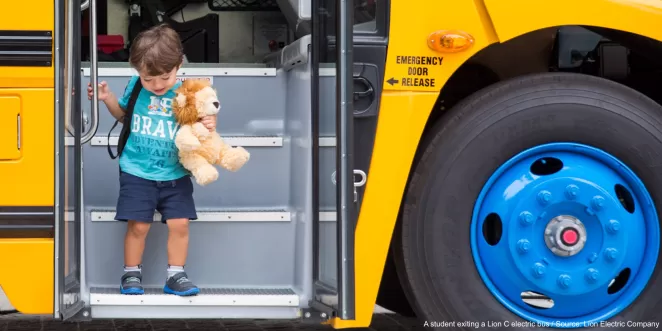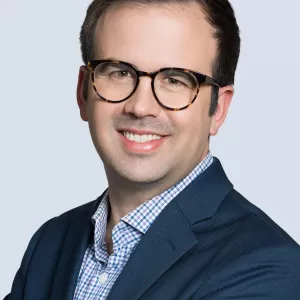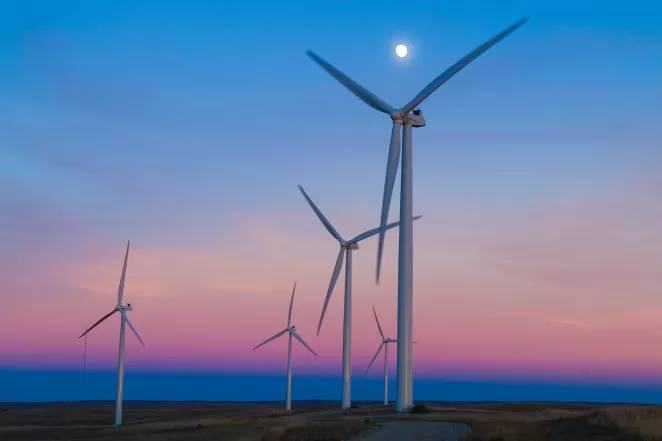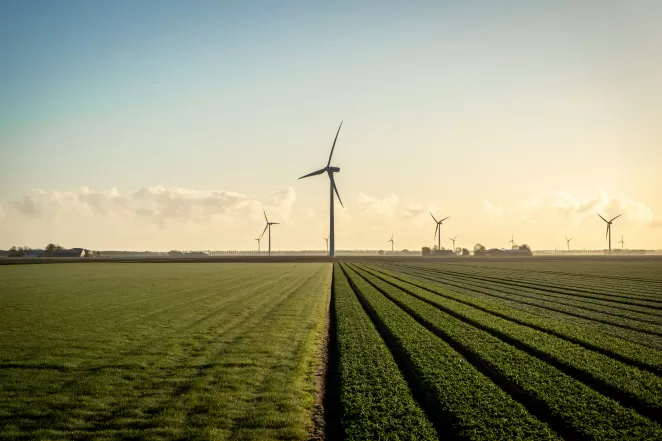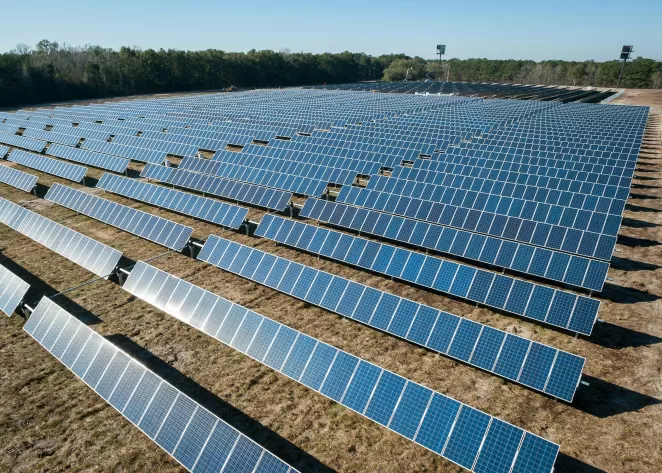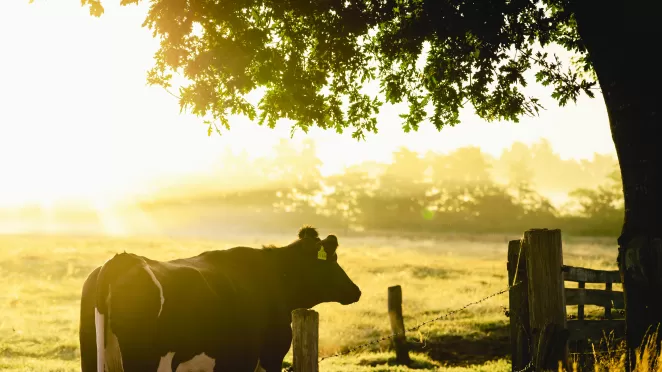An All-In Pathway to 2030: The Beyond 50 Scenario
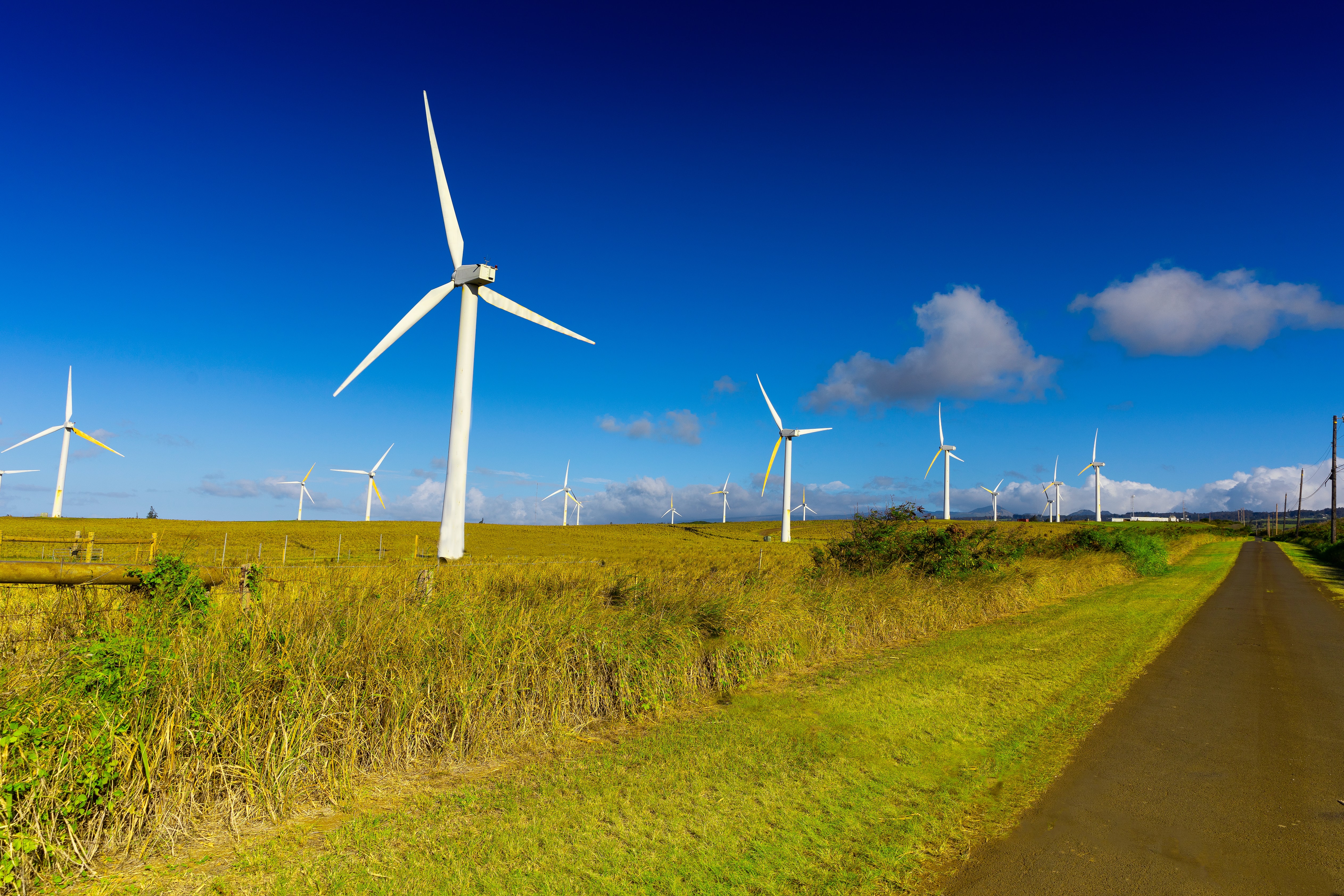
Key Takeaways:
New analysis shows how an all-of-society climate strategy—drawing on the groundswell of bottom-up action from states, cities, and businesses, combined with ongoing federal leadership—can enable the United States to meet its 2030 climate target of 50-52% emissions reductions by 2030 from 2005 levels.
Achieving “Beyond 50” requires coordinated implementation of all current policies at the federal and non-federal levels. Our analysis finds an ambitious, ongoing "All-In" leadership combining additional emissions reductions from states, cities, businesses, and other actors with new federal regulatory actions can achieve reductions of 52% by 2030 from 2005 levels.
This achievement will be built on the critical building blocks already in place for an all-of-society U.S. climate strategy, including the new Inflation Reduction Act (IRA) and the Infrastructure Investment and Jobs Act (IIJA); regulatory actions from the Executive Branch, including CAFE standards and methane rules; and continued and significant policy progress from states, cities, businesses, and others across all sectors and greenhouse gases. Together, these existing policies at federal and non-federal levels, including the new IRA, can reduce emissions by 39% below 2005 levels by 2030.
To achieve Beyond 50 from today’s levels, the power sector contributes 16% (1,051 MtCO2e) toward overall emissions reductions; the transport sector contributes 5% (308 MtCO2e); the methane sector contributes 3% (202 MtCO2e); and the industry sector contributes 3% (176 MtCO2e).
Additional policies from the buildings, lands, other CO2 sectors, and other non-CO2 gases are also needed to achieve the 2030 target and to set up additional reductions after 2030 to solidify a transition toward a clean, healthy, and prosperous future.
Such collaboration can reduce emissions well beyond what the federal government can do alone. Key bottom-up actions include adopting zero-emission vehicle sales targets and mandates, accelerating the retirement of all existing coal plants, and implementing state-of-the-art fugitive methane leak recovery. These measures can be best achieved through a combination of leadership by climate-smart states and ambitious federal standards and policies.
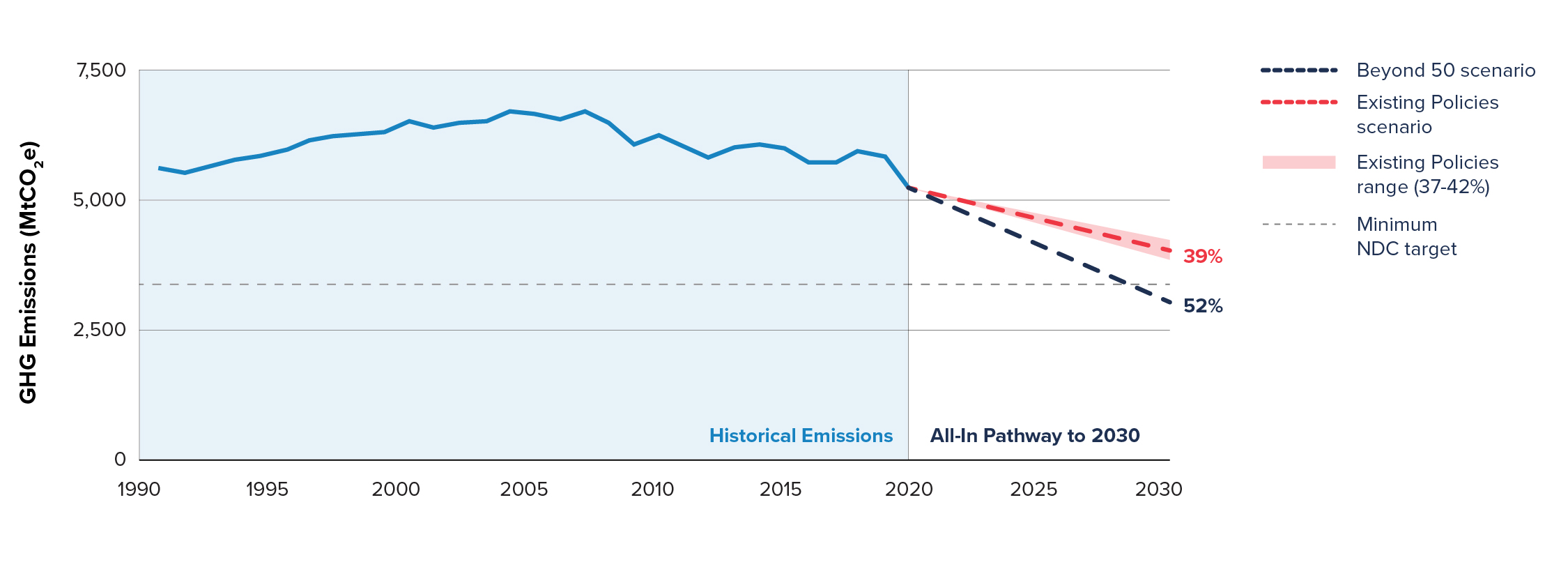
Our new economy-wide analysis depicts how an expanded all-of-society climate strategy—leveraging the critical bottom-up action from states, cities, businesses, and more—can help the United States achieve its 2030 climate target and 2050 net-zero goal.
The “Beyond 50” scenario detailed in this report shows the pathway to achieving over 50% emissions reductions from 2005 levels by 2030. To achieve the Beyond 50 scenario, the report describes the additional yet feasible actions that every sector and actor can take in addition to currently enacted policies.
Meet the experts
Meet all authors
- Alicia Zhao, Center for Global Sustainability at the University of Maryland
- Shannon Kennedy, Center for Global Sustainability at the University of Maryland
- Kowan O'Keefe, Center for Global Sustainability at the University of Maryland
- Maria Borrero, Center for Global Sustainability at the University of Maryland
- Kyle Clark-Sutton, RMI
- Ryna Cui, Center for Global Sustainability at the University of Maryland
- Camryn Dahl, Center for Global Sustainability at the University of Maryland
- Grace Deye, Center for Global Sustainability at the University of Maryland
- John Feldmann, World Resources InstituteKevin Kennedy, World Resources Institute
- Haewon McJeon, Center for Global Sustainability at the University of Maryland
- Miguel Moravec, RMI
- Dimitri Nilov, Center for Global Sustainability at the University of Maryland
- Sujata Rajpurohit, World Resources Institute
- Joaquin Rosas, World Resources Institute
- Claire Squire, Center for Global Sustainability at the University of Maryland
